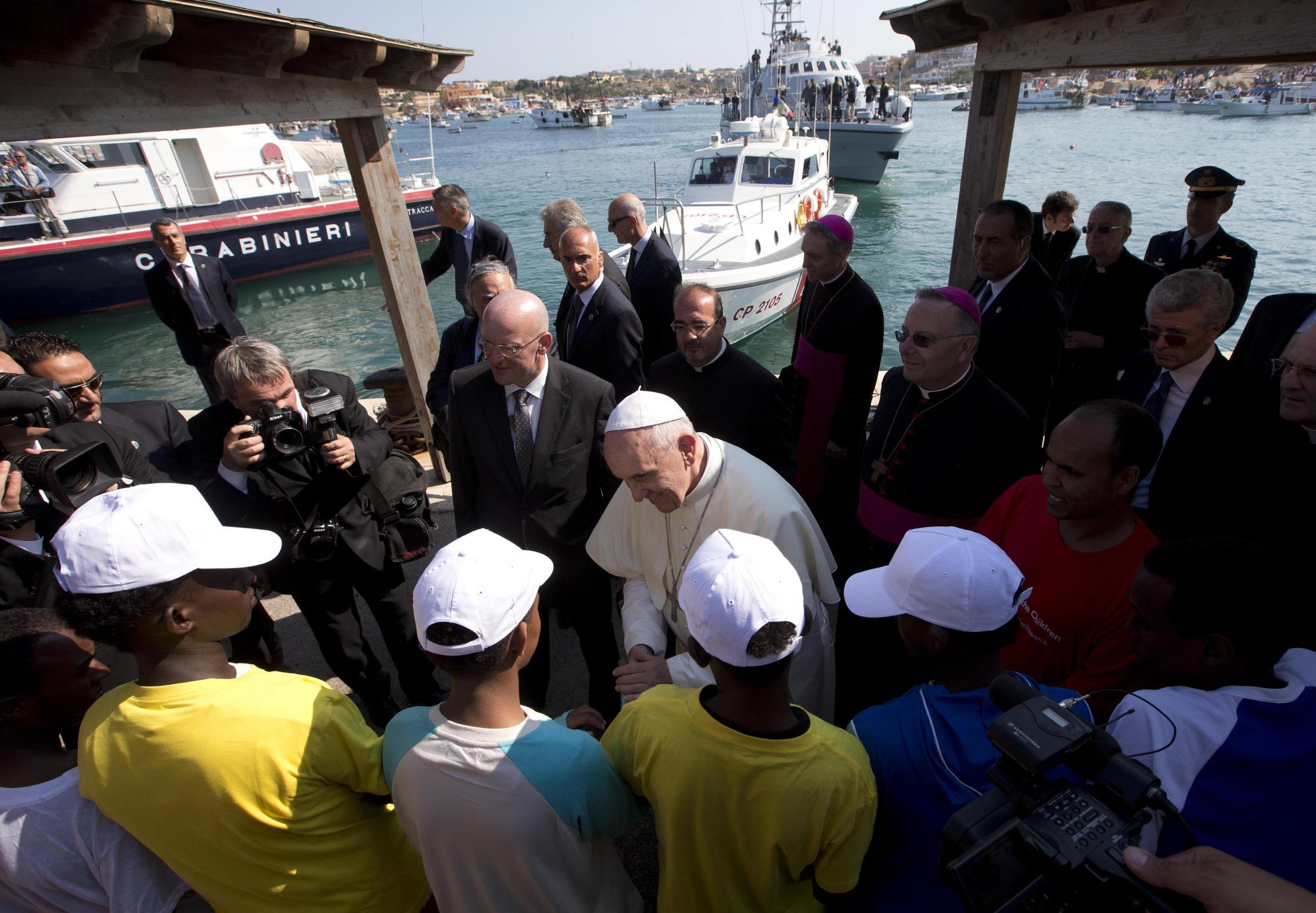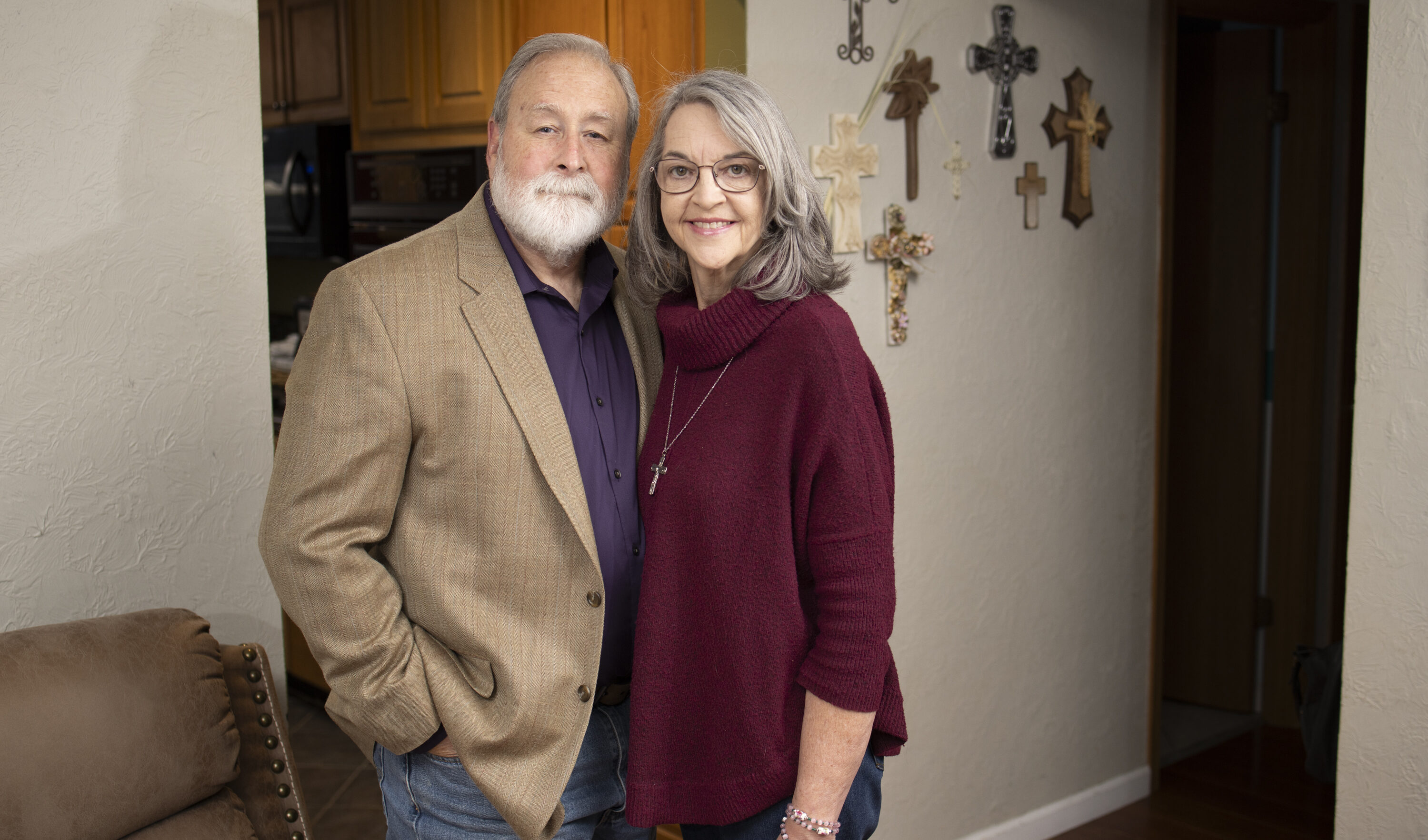Pope Francis’ words in ‘Joy of the Gospel’ serve as ongoing inspiration to Catholics working with the poor

Document focused on evangelization with attention to poor and vulnerable
“Evangelii Gaudium” (“The Joy of the Gospel”), Pope Francis’ first extensive piece of writing as pontiff, inspired Catholics across the world through his vision for a missionary-transforming Church dedicated to evangelization, and with a particular focus on society’s poorest and most vulnerable.
The 50,000-word apostolic exhortation, released in November 2013 in response to the October 2012 synod on the new evangelization, emphasized the Christian life as based on knowing and experiencing God’s love, mercy and salvation offered to all through the death and resurrection of Jesus Christ. At the heart of it is a message to love one another, which must motivate Christians to share the Gospel, help the poor and work for social justice.
Pope Francis wrote that the Church must initiate everyone into an “art of accompaniment” that leads others closer to God. It’s a message that calls us into a life as disciples of Christ, said Sister Amy Diesen, a Franciscan Sister of Our Lady of Perpetual Help.
Sister Amy sees that lived out in the daily work of the Ignatian Volunteer Corps, an apostolate she coordinates that offers semi-retired and retired men and women an opportunity to serve others, pray and reflect together as a small community and to grow spiritually. Using their talents and professional life experiences, volunteers make a commitment to serve others through a variety of social ministries, including food pantries, work with the formerly incarcerated and at schools.
“It allows them to do this accompaniment,” she said. “The pope says this art of accompaniment teaches us to remove our sandals and find the sacredness in that.”
Pope Francis was inspired by the lives of St. Francis of Assisi — his namesake — and St. Ignatius of Loyola — founder of the Jesuits — who laid down their armor and sword, surrendering themselves to God.
“They said, I have to put these things down in order to develop this art of accompaniment,” Sister Amy said. “Rather than having armor and swords, to pick up a bowl, pitcher and towel and wash people’s feet. The pope was a prime example of that in washing feet and being with those who are poor and marginalized. He raised them up and said they’re sacred too.”
Christine Dragonette, director of social ministry at St. Francis Xavier (College) Church noted that Pope Francis’ life was an example of how to live a life of joy in sharing the Gospel message with others.
“His life was a constant reminder of his words in ‘The Joy of the Gospel,’” she said. “He walked the walk and talked the talk.”
The beginning of the document focuses on the Church’s missionary transformation, in which Pope Francis called for a Church that is “bruised, hurting and dirty because it has been out on the streets, rather than a Church which is unhealthy from being confined and from clinging to its own security.”
Dragonette sees those words as an affirmation of the Church’s social ministry. “It’s a challenge to not be passive or content, but to be in the nitty-gritty realities of our parish and the wider community around it,” she said.
When the events in Ferguson unfolded in 2014, the College Church saw a need to respond with a parish ministry focused on working toward racial justice. Parishioners also were inspired by “Laudato Si’,” Pope Francis’ document on the environment, and formed a ministry focused on care for creation. Parishioners recently have been responding to needs of immigrants in the community.
“The one thing I see in our parishioners and volunteers are people who directly and indirectly embody that joy in ministry,” she said. “People across all of our ministries are always referencing Pope Francis as an inspiration. Everything we do in evangelization must include justice, dignity and seeking the common good.”
Pope Francis had a discerning heart and knew how to read the signs of the time, seeing the consolations and desolations of others, and having a practical approach of living the faith, said Father Tom Greene, provincial superior of the Jesuits’ USA Central and Southern Province.
From the beginning of his papacy, he pointed out the dignity of others, especially those on the margins. That was reflected in the places he visited as pope, the people he encountered and even in the Church leaders that he appointed, Father Greene said.
“The Joy of the Gospel” inspired Jared Bryson as he transitioned from a leadership role in Catholic health care to become president and CEO of Catholic Charities of the Archdiocese of St. Louis.
In the document, Pope Francis said that evangelizers must “take on the ‘smell of the sheep,’” to which Bryson said his best days are when he’s in the field, listening to families and finding ways in which the Church can support them in their time of need.
He cited Catholic Charities’ work in Washington County, one of the poorest counties in the state, and mentioned it as a reminder of living Pope Francis’ central message in “The Joy of the Gospel” here in our own communities.
“Mother Teresa said don’t come to Calcutta — find your own Calcutta,” Bryson said. “We send people on mission trips everywhere else, but how do we have the joy of the Gospel right here?”






